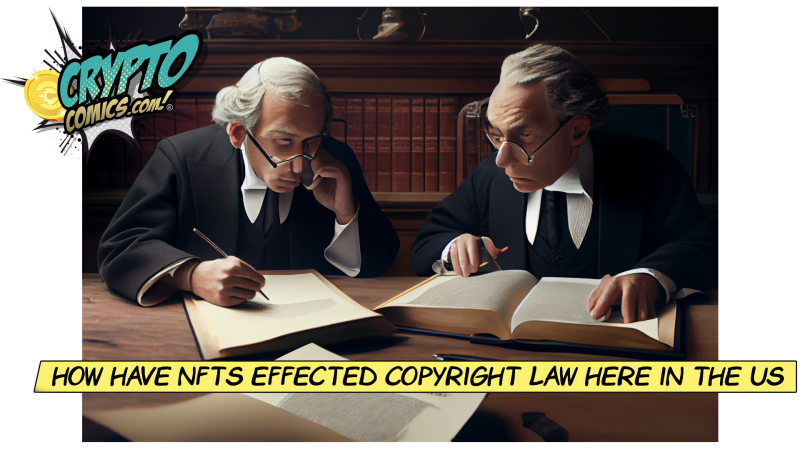by Matthew Russell - Posted 1 year ago

Welcome my CryptoComics Compatriots. Today we are going to talk about the more broad strokes of Copyrights and how they affect the NFT realm. I want to preface this article by stating that I am in no way a Copyright Lawyer. For exact details, I suggest you find one and speak with them in depth.
NFTs, or non-fungible tokens, are digital assets that can be used to represent ownership of unique digital items such as comics, art, music, videos, and more. With the rise of NFTs, copyright laws in the US have been affected in several ways.
One of the main ways NFTs have affected copyright laws is by creating new challenges in terms of ownership and provenance of digital assets. NFTs allow for the creation of unique digital items, but it can be difficult to prove who owns the underlying copyright of the work. This can lead to disputes over ownership and copyright infringement.
In some cases, when an NFT is sold, copyrights go along with this item, in others; usage rights. In most cases, when you purchase an NFT of a comic, for instance, you own that comic just as if you bought it off a newsstand.
This does not give you the rights to any of the material within. You may sell it, trade it, look at it, or even destroy it, but you do not have the right to duplicate it.
Another way NFTs have affected copyright laws is by creating new revenue streams for creators of digital content. NFTs allow artists, musicians, and other creators to sell their digital works as one-of-a-kind assets, which can fetch large sums of money.
This has led to new opportunities for creators to monetize their work, but it has also led to concerns about exploitation and the need for artists to have more control over the use and distribution of their work.
This is why it is so important to research the Terms & Conditions on a platform, to see what rights you retain over your work.
In response to these changes, lawmakers and industry groups have been discussing potential updates to copyright laws to address the unique challenges posed by NFTs. Some have suggested that copyright laws should be updated to provide more clarity and protection for creators and owners of digital assets, while others have argued that the current laws are sufficient and that the industry should self-regulate.
Let us know in the comments below; do you think that new laws should be passed to help protect creators, or should the industry “self-regulate”?
It's worth noting that the area of NFTs and their relation to copyright laws is still a developing field, and the legal landscape may change in the future as more cases and regulations are in place. It's important for creators, collectors, and investors in NFTs to be aware of the legal implications and potential risks associated with this new technology.